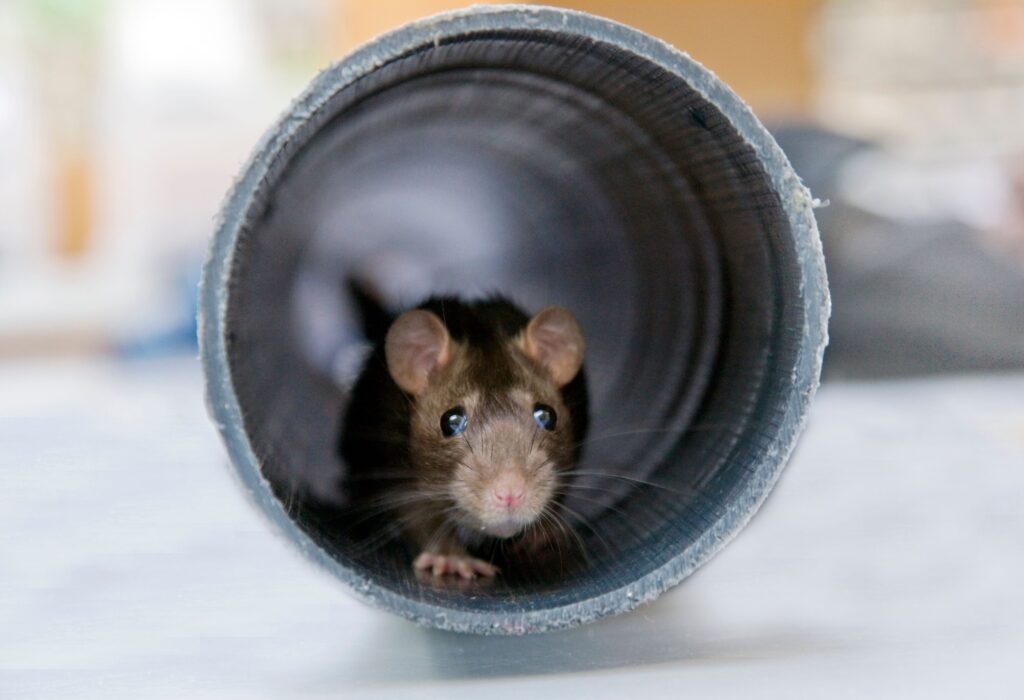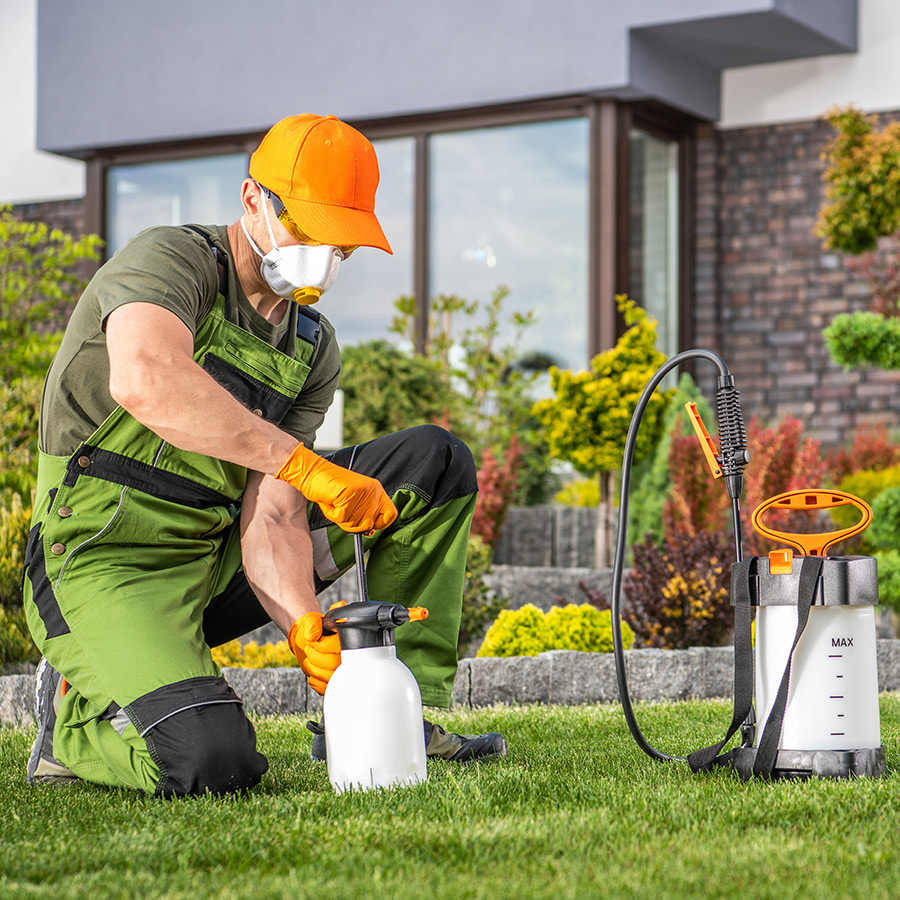Rodent infestations can be a significant problem in apartment buildings, where multiple units can create ideal conditions for these pests to thrive. You might be wondering how to avoid rodent infestation in apartment building. Mice and rats not only pose health risks but can also cause considerable damage to property. Therefore, it’s crucial for property managers, landlords, and tenants to take proactive measures to prevent rodent infestations. Here’s a comprehensive guide on how to avoid rodent problems in apartment buildings.

Understanding Rodents and Their Habits
Rodents, particularly mice and rats, are notorious for their ability to adapt and thrive in urban environments, including apartment buildings. They seek out food, water, and shelter, often taking advantage of the interconnectedness of units to move easily from one space to another.
Understanding rodent behavior is the first step in prevention. Rodents can squeeze through tiny openings as small as a quarter, making it essential to inspect the premises for potential entry points. Additionally, they are nocturnal creatures, meaning they are most active at night when they feel safest. This behavior can make it challenging to detect their presence until an infestation becomes severe.
Maintain Cleanliness
One of the most effective ways to prevent rodent infestations is by maintaining a clean environment. Here are some steps tenants and property managers can take:
- Regular Cleaning: Ensure common areas, such as hallways, lobbies, and laundry rooms, are cleaned regularly. Sweep and mop floors to eliminate crumbs and spills that may attract rodents.
- Kitchen Hygiene: In individual units, tenants should be encouraged to keep kitchens clean. This includes wiping down counters, cleaning up spills immediately, and regularly emptying trash bins. Store food in airtight containers to minimize odors that attract rodents.
- Dispose of Waste Properly: Encourage tenants to use secure trash receptacles. Trash should be taken out regularly, and bins should be kept covered to prevent access.
- Landscaping Maintenance: For buildings with outdoor areas, ensure that landscaping is well-maintained. Trim back shrubs, bushes, and trees to minimize potential nesting sites for rodents.

Seal Entry Points
As mentioned earlier, rodents can enter through surprisingly small openings. It is vital to conduct regular inspections to identify and seal any potential entry points. Here are some steps to consider:
- Inspect Walls and Foundations: Check for gaps, cracks, or holes in the building’s exterior. Seal these with appropriate materials, such as caulk or steel wool, to prevent rodents from entering.
- Secure Doors and Windows: Ensure that all doors and windows close tightly and have weather stripping to close any gaps. Install door sweeps on exterior doors to eliminate gaps at the bottom.
- Inspect Vents and Pipes: Check vents, pipes, and utility lines for openings. Install screens over vents and ensure that any holes around pipes are sealed.
- Basement and Attic Maintenance: Regularly inspect basements and attics, as these areas can often become neglected and may provide ideal nesting conditions for rodents. Ensure these areas are well-sealed and free of clutter.

Educate Tenants
Education plays a crucial role in preventing rodent infestations. Property managers and landlords should take the time to educate tenants about the importance of maintaining cleanliness and vigilance. Here are some strategies:
- Informational Materials: Provide tenants with brochures or flyers detailing best practices for preventing rodent infestations. This can include cleaning tips, sealing openings, and the importance of reporting sightings immediately.
- Regular Meetings: Hold regular meetings with tenants to discuss pest control measures. Use this opportunity to encourage open communication about any pest sightings or concerns.
- Encourage Reporting: Create a system for tenants to report pest sightings quickly and efficiently. The sooner an issue is reported, the sooner it can be addressed, reducing the likelihood of a larger infestation.
Implement Regular Inspections
Regular inspections can help identify potential problems before they escalate. Property managers should establish a routine inspection schedule to assess the property for signs of rodent activity. Here’s what to look for:
- Signs of Activity: Look for droppings, gnaw marks, or nests in common areas, basements, or attics. If any signs are detected, take immediate action to address the issue.
- Monitor Food Sources: Check common areas for improperly stored food, trash, or spills that may attract rodents. Encourage tenants to follow proper food storage practices.
- Collaborate with Pest Control Experts: Consider hiring a pest control professional to conduct inspections and provide recommendations. Experts can offer valuable insights into potential vulnerabilities in the building and suggest preventive measures.

Use Rodent Control Measures
If a rodent problem is detected, it’s essential to act quickly. There are several control measures that property managers can implement:
- Traps: Use snap traps or electronic traps in areas where rodent activity has been observed. Ensure that traps are placed out of reach of pets and children.
- Baits and Rodenticides: While baits and poisons can be effective, they should be used with caution. Consult with pest control professionals to ensure these methods are safe and appropriate for the building.
- Natural Deterrents: Consider using natural deterrents, such as peppermint oil, which can repel rodents. Placing cotton balls soaked in peppermint oil near entry points may help deter them.

Foster a Community Environment
Creating a sense of community within the apartment building can also aid in preventing rodent infestations. Encourage tenants to work together in maintaining cleanliness and reporting potential problems. When everyone is on the same page regarding cleanliness and pest control measures, it becomes easier to prevent infestations.
- Community Clean-Up Days: Organize community clean-up events where tenants can come together to clean shared spaces. This fosters a sense of community and keeps the building clean.
- Tenant Communication: Encourage open communication among tenants. A group chat or community board can facilitate discussions about pest sightings and cleanliness efforts.

Conclusion
Preventing rodent infestations in apartment buildings requires a multifaceted approach that involves cleanliness, education, and regular maintenance. By understanding rodent behavior, sealing entry points, educating tenants, conducting regular inspections, and implementing control measures, property managers can significantly reduce the risk of infestations. Creating a community-oriented environment fosters collective responsibility for cleanliness and vigilance, ensuring a comfortable living space for all tenants. If a rodent problem does arise, swift action and professional pest control services can help manage and resolve the issue effectively.